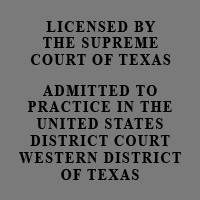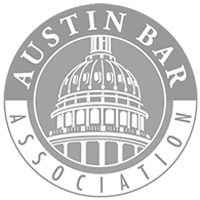Brazilian Government Official Bribe Lawsuit, Brazilian Government Official Illegal Kickback Lawsuit, Brazil Foreign Corrupt Practices Bounty Action Lawsuit, Brazil Bribe Confidential Whistleblower Reward Lawsuit, Multinational Oil Company Bribe Lawsuit, & Brazil Illegal Bribe Bounty Action Lawsuit Information by US SEC Brazil Bribe Bounty Lawyer and Brazil Foreign Corrupt Practices Whistleblower Lawyer Jason S. Coomer
The Foreign Corrupt Practices Act (FCPA) and other Anti-Bribery laws prohibit bribes by multinational corporations to foreign officials to obtain lucrative contracts. Confidential Bribe Whistleblowers that properly report these illegal contract bribes, kickbacks, and other corrupt practices may recover large rewards for exposing corrupt practices committed by multinational corporation. If you are aware of significant contract bribes, illegal kickbacks or other corrupt practices by foreign companies and/or multinational corporations, please feel free to contact Brazilian Illegal Bribe and Kickback Whistleblower Reward Lawyer Jason Coomer via e-mail message or use our submission form to inquire about a potential Brazilian Illegal Contract Bribe Whistleblower Reward Bounty Action.
Brazil is a Regional Economic Power in South America that is Becoming an Emerging World Economic Power and is Attracting Foreign Direct Investments from Many Foreign Multinational Corporations
Brazil is the fifth largest country in the world by geographical area and population. In 2011, Brazil became the sixth largest economy by surpassing the United Kingdom. One of the reasons for the growth of the Brazilian economy is that over the last several years the Brazilian government has put in place several policies to encourage foreign investment into Brazilian economy. These policies have encouraged international commerce and increased Brazil's presence in the global economy. Through these policies, the Brazilian economy has expanded rapidly with large amounts of foreign direct investments coming into the country. Foreign companies are now moving into Brazil at a record pace, and many Brazilian companies are expanding internationally. For foreign investors and large multinational corporations, the battle to invest into the Brazilian economy and potentially reap huge rewards has become extremely competitive. This fierce competition combined with the Brazilian history of government corruption will be a test for many new anti-bribery and anti-corruption laws that have been passed around the world and are being considered in Brazil.
Brazilian Government Official Corruption, Brazilian Public Official Bribes, Brazilian Multinational Corporation Bribes, and Brazil Government Official Illegal Kickbacks Result in Political Action to Adopt Anti-Bribery Laws and Policies Similar to the US Foreign Corrupt Practices Act, UK Anti-Bribery Act, and other Global Trade Anti-Corruption Policies
With the rapidly expanding Brazilian economy, foreign direct investments into Brazil, and Brazilian companies expanding into other countriess have come allegations of government official bribes, government agent kickbacks, fraud, embezzlement, and other forms of corruption. Included in these Brazilian government corruption scandals are several government officials that are being forced to resign, while other government officials in President Dilma Rousseff’s cabinet are under investigation for government corruption. In the aftermath of these corruption scandals, the Brazilian Congress is in the process of enacting new law that would dramatically strengthen the Brazilian foreign bribery laws. The foreign anti-bribery law is part of a global trend where governments around the world are cracking down on large corrupt multinational corporations that are offering bribes and kickbacks to government officials in order to obtain large government contracts, avoid health & safety regulations, bypass environmental laws, and exploit populations in foreign countries.
The Organisation for Economic Co-operation and Development (OECD) has been leading the way in fighting bribery of government officials. The OECD Anti-Bribery Convention which Brazil has adopted established legally binding standards to criminalize bribery of foreign public officials in international business transactions. In addition to Brazil the OECD Anti-Bribery Convention has been adopted by 34 OECD member countries and three other non-member countries - Argentina, Bulgaria, and South Africa. Anti-bribery and corruption laws have also recently been expanded in the United States through the Dodd Frank Bounty Action and U.S. Foreign Corrupt Practices Act (“FCPA”) as well as the UK Bribery Act.
It is thought that these Brazilian anti-bribery and anti-corruption reforms will improve Brazil's ability to attract legitimate foreign investment as well as improve Brazilian multinational corporations' ability to expand throughout South America, Latin America, and the world. As Brazilian-based multinationals continue to expand internationally, they will want to ensure that they are protected from corrupt practices by other large multinational corporations and are given a fair chance to legally expand their businesses into international markets.
Brazil Government Official Oil Contract Bribe Bounty Action Lawyer, Multinational Energy Company Brazil Contract Bribe Whistleblower Reward Lawyer, Brazilian Multinational Energy Corporation Bribe Lawyer, Oil Company Brazil Government Official Illegal Kickback Lawyer, Brazil Oil Lease Foreign Corrupt Practices Bounty Action Lawyer, Brazil Oil Offshore Drilling Contract Bribe Whistleblower Reward Lawyer, & Oil Company Brazil Illegal Bribe Bounty Action Lawyer
A key Brazilian industry is the petrochemical industry. With large natural reserves of oil and gas combined with foreign direct investments of technology, Brazil will soon pass China and the United Arab Emirates to become world's fifth largest oil producing nation, only behind Russia, Saudi Arabia, the USA and Iran. Much of Brazil's oil and gas production comes from offshore drilling in deep water reserves. Included in these deep water oil and gas reserves is the Santos Basin, which is located in the south Atlantic Ocean. The Santos Basin is approximately 300 kilometers south east of Sao Paulo and is one of the world's largest oil prospects. The Santos Basin is situated in deepwater and includes two of the largest oil fields to be discovered in recent times: Tupi (2006) and Jupiter (2008). The Santos Basin also has the Carioca/Sugar Loaf field which could contain as many as 40 billion barrels.
Because of the location of Brazil's vast oil and gas reserves, Brazil is seeking and developing deep water drilling technologies including Floating Production, Storage and Offloading (FPSO) technology. The FPSO units are used in remote and deepwater zones where it is neither practical nor cost-effective to lay seabed pipelines from a well to an onshore terminal. Brazil currently has more than 25 FPSOs in operation off the east coast of Brazil and is setting up a domestic FPSO industry.
The production of the Tupi and Jupiter fields combined with the development of production in the Sugar Loaf field should enable the Brazilian Oil Industry to bring in vast amounts of foreign capital into Brazil and allow Brazil to keep advancing its drilling technologies and developing its petrochemical infrastructure. The rigs, platforms and tankers that will service and harvest Brazil's reserves in the coming years will probably be constructed using local suppliers, manpower and facilities instead of outsourcing to third party companies that do not feed directly into the local/national economy, however, deep technology and capital from around the world will be needed to develop the infrastructure and train the work force.
Full exploitation of these vast oil riches will create huge opportunities for Brazil and will help Brazil to become a regional economic power. In fact, it is widely believed that Brazil's oil and gas reserves will catapult the country from an agriculturally-based emerging third world economy to a first world economic power in a matter of years.
Brazilian Oil Company Employee Confidential Whistleblower Lawyers, Brazilian Energy Company Illegal Kickback Bounty Action Lawyers, Petrobras Employee Protected Whistleblower Bounty Action Lawyers, Petrobras Energy Company Employee Confidential Whistleblower Lawyers, and Anonymous Multinational Oil Company Whistleblower Lawyers
The Brazilian energy industry is dominated by the Brazilian multinational energy company, Petrobras. Petrobras is the forth largest company in the world measured by market capitalization. It is also Brazil's semi-public oil company that is public and private hybrid. As Brazil's public oil company, Petrobras has a goal of directing over 50% of its future oil and gas contracts to local Brazilian companies. This protectionist economic policy is designed to help develop the Brazilian petrochemical industry and to limit the influence of foreign multinational oil companies on the Brazilian economy. However, avoiding corruption including Santos Basin lease bribes, Petrobras employee bribes, Brazilian government official bribes, Petrobras oil lease bribes, and other potential Petrobras corruption may prove difficult as the historical culture of Brazilian business and Brazilian government includes substantial corruption.
Petrobras has pledged a $224 billon investment in the Santos Basin through 2014 which should be able to bring in advanced technology and industry from large foreign multinational energy companies. This large amount of investment capital combined with the vast rich Brazilian oil and gas reserves, will bring in fierce competition for these large Brazilian contracts, Brazilian offshore drilling leases, and Brazilian leases. This fierce competition over these huge riches will definitely test the Brazilian government as to if corrupt practices will continue to be common in Brazil or will new anti-bribery laws, whistleblowers, informants, honest Petrobras employees, honest government officials, and honest Petrobras officers be able to manage these resources for the good of the Brazilian economy and Brazilian people?
As the sole operator in the Santos fields, Petrobras will significant power in the development of Brazil's petrochemical industry and may be the target of bribes and corruption. Many of the large multinational oil companies including BP are already competing to drill in the rich Bazilian oil and gas fields. BP has already acquired 10 exploration sites in Brazil. Most of these explorations sites are in the Campos basin which according to the Brazilian state oil company Petrobas may have 55 separate oil reserves. The BG Group has also entered into a contract with Petrobras and Petrogal where they have a 25% interest in the Tupi field. Current estimates of the Tupi field are that it contains between five and eight billion barrels of oil and natural gas. The BG Group also has a 30 percent interest with Petrobras and Repsol in other areas of the Santos Basin and other large contracts with with Petrobras. In the future, the BG Group and Petrobras expect to award contracts to as many as three of the large multinational energy conglomerates.
Brazilian Oil Company Employee Confidential Whistleblower Lawyers, Brazilian Energy Company Illegal Kickback Bounty Action Lawyers, Petrobras Employee Protected Whistleblower Bounty Action Lawyers, Petrobras Energy Company Employee Confidential Whistleblower Lawyers, Multinational Oil Company Violations of the Foreign Corrupt Practices Act Whistleblower Lawyer, Energy Company Bribe Offshore Drilling Contract Whistleblower Lawyers, Brazilian SEC Whistleblower Incentive Program Lawyers, Brazil Illegal Contract Bribe Bounty Lawyers and Anonymous Multinational Oil Company Whistleblower Lawyers
Corrupt Foreign Multinational Oil Companies, Multinational Construction Companies, and Multinational Energy Companies that pay illegal kickbacks and bribes to Brazilian government officials and former Brazilian government officials in exchange for Brazilian drilling contracts, Brazilian pipeline contracts, Brazilian oil leases, Brazilian offshore drilling contracts, Brazilian infrastructure contracts, and other Brazilian large building projects can be brought to justice and made to pay large penalties under the Foreign Corrupt Practices Act. The whistleblowers that bring these corporations to justice may be able to collect large economic rewards under the Securities Exchange Act (SEC Whistleblower Bounty Actions) and the Commodity Exchange Act (CFTC Whisteblower Bounty Actions).
The Brazilian Oil Company Illegal Bribe Whistleblower or Brazilian Petroleum Company Illegal Kickback Whistleblower may be entitled to not only the amount of the illegal bribe or kickback, but the benefit of the illegal bribe or kickback. In cases where $100,000.00 bribe is made to obtain a $900 million pipeline, the Brazilian Petroleum Illegal Bribe Whistleblower or Brazilian Oil Company Illegal Kickback Whistleblower may be entitled to 10 to 30% of the $900,000,000.00 and the $100,000.00 translating into a $90 million to $300 million award.
United States Foreign Corrupt Practices Act Whistleblower Lawyer, South America Bribe Whistleblower Reward Lawyer, United States Foreign Corrupt Practices Act Violation Whistleblower Reward Lawyer, Argentina Government Official Bribe Whistleblower Incentive Lawyer, & Multinational Corporation South America Illegal Kickback Lawyer
Under the Foreign Corrupt Practices Act and SEC Whistleblower Incentive Program, whistleblowers with original and specialized knowledge and evidence of corporate bribes of government officials and illegal kickbacks to government agents are eligible to recover large economic awards. By gathering this evidence and going through a lawyer, these whistleblowers can protect their identity through the process and potentially collect large rewards of 10% to 30% of the monetary sanctions including disgorged funds. If you are aware of an illegal bribe or illegal kickback that was used to secure a large contract, please feel free to contact Multinational Corporation Illegal Kickback and Bribe Whistleblower Lawyer Jason Coomer via e-mail message or use our submission form about a potential SEC Whistleblower Incentive Program Action or other Whistleblower Bounty Action.
Below are press releases from the U.S. Securities and Exchange Commission SEC and Department of Justice regarding large bribe schemes and illegal kickbacks used in South America. These multinational corporate bribes in South America including Brazil. In these cases we see that large multinational corporations are using bribes and kickbacks to government officials to secure large contracts. In these cases, the U.S. Securities and Exchange Commission is able to impose large fines for FCPA violations. If similar fines are made as a result of a whistleblower action could result in large economic rewards to the whistleblower.
SEC Charges Seven Oil Services and Freight Forwarding Companies for Widespread Bribery of Customs Officials FOR IMMEDIATE RELEASE 2010-214
Washington, D.C., Nov. 4, 2010 — The Securities and Exchange Commission today announced sweeping settlements with global freight forwarding company Panalpina, Inc. and six other companies in the oil services industry that violated the Foreign Corrupt Practices Act (FCPA) by paying millions of dollars in bribes to foreign officials to receive preferential treatment and improper benefits during the customs process. SEC Complaints:
Panalpina, Inc. Pride International, Inc. Tidewater Inc. Transocean, Inc. GlobalSantaFe Corp. Noble Corporation
SEC Administrative Proceeding:
Royal Dutch Shell plc
The SEC alleges that the companies bribed customs officials in more than 10 countries in exchange for such perks as avoiding applicable customs duties on imported goods, expediting the importation of goods and equipment, extending drilling contracts, and lowering tax assessments. The companies also paid bribes to obtain false documentation related to temporary import permits for oil drilling rigs, and enable the release of drilling rigs and other equipment from customs officials.
The SEC's cases were coordinated with the U.S. Department of Justice's Fraud Section, and the sanctions to be paid by the companies under the settlements total $236.5 million. This is the first sweep of a particular industrial sector in order to crack down on public companies and third parties who are paying bribes abroad.
"Bribing customs officials is not only illegal but also bad for business, as the coordinated efforts of law enforcement increase the risk of detection every day," said Robert Khuzami, Director of the SEC's Division of Enforcement. "These companies resorted to lucrative arrangements behind the scenes to obtain phony paperwork and special favors, and they landed themselves squarely in investigators' crosshairs."
Cheryl J. Scarboro, Chief of the SEC's Foreign Corrupt Practices Act Unit, added, "This investigation was the culmination of proactive work by the SEC and DOJ after detecting widespread corruption in the oil services industry. The FCPA Unit will continue to focus on industry-wide sweeps, and no industry is immune from investigation."
Without admitting or denying the allegations, the companies agreed to settle the SEC's charges against them by paying approximately $80 million in disgorgement, interest, and penalties. The companies agreed to pay fines of $156.5 million to settle the criminal proceedings with DOJ.
SEC charges against six companies were filed in federal court, and one company was charged in an SEC administrative proceeding. Among the SEC's allegations:
Panalpina, Inc. — A U.S. subsidiary of the Swiss freight forwarding giant Panalpina World Transport (Holding) Ltd. (PWT), Panalpina is charged with paying bribes to customs officials around the world from 2002 to 2007 on behalf of its customers, some of whom are included in these settlements. Panalpina bribed customs officials in Nigeria, Angola, Brazil, Russia and Kazakhstan to enable importation of goods into those countries and the provision of logistics services. The bribes were often authorized by Panalpina's customers and then inaccurately described in customer invoices as "local processing" or "special intervention" or "special handling" fees.
Panalpina agreed to an injunction and will pay disgorgement of $11,329,369 in the SEC case. PWT and Panalpina agreed to pay a criminal fine of $70.56 million.
Pride International, Inc. — One of the world's largest offshore drilling companies, Pride and its subsidiaries paid approximately $2 million to foreign officials in eight countries from 2001 to 2006 in exchange for various benefits related to oil services. For example, Pride's former country manager in Venezuela authorized bribes of approximately $384,000 to a state-owned oil company official to secure extensions of drilling contracts, and a French subsidiary of Pride paid $500,000 in bribes intended for a judge to influence customs litigation relating to the importation of a drilling rig.
Pride agreed to an injunction and will pay disgorgement and prejudgment interest of $23,529,718 in the SEC case. Pride and subsidiary Pride Forasol agreed to pay a criminal fine of $32.625 million.
Tidewater Inc. — The New Orleans-based shipping company through a subsidiary reimbursed approximately $1.6 million to its customs broker in Nigeria from 2002 to 2007 so the broker could make improper payments to Nigerian customs officials and induce them to disregard regulatory requirements related to the importation of Tidewater's vessels.
Tidewater agreed to an injunction and will pay $8,104,362 in disgorgement and a $217,000 penalty. Tidewater Marine International agreed to pay a criminal fine of $7.35 million.
Transocean, Inc. — An international provider of offshore drilling services to oil companies throughout the world, Transocean made illicit payments from at least 2002 to 2007 through its customs agents to Nigerian government officials in order to extend the temporary importation status of its drilling rigs. Bribes also were paid to obtain false paperwork associated with its drilling rigs and obtain inward clearance authorizations for its rigs and a bond registration.
Transocean agreed to an injunction and will pay disgorgement and prejudgment interest of $7,265,080. Transocean Ltd. and Transocean Inc. agreed to pay a criminal fine of $13.44 million.
GlobalSantaFe Corp. (GSF) A provider of offshore drilling services GSF made illegal payments through its customs brokers from approximately 2002 to 2007 to officials of the Nigerian Customs Service (NCS) to secure documentation showing that its rigs had left Nigerian waters. The rigs had in fact never moved. GSF also made other payments to government officials in Gabon, Angola, and Equatorial Guinea.
GSF agreed to an injunction and will pay disgorgement of $3,758,165 and a penalty of $2.1 million.
Noble Corporation — An offshore drilling services provider, Noble authorized payments by its Nigerian subsidiary to its custom agent to obtain false documentation from NCS officials to show export and re-import of its drilling rigs into Nigerian waters. From 2003 to 2007, Noble obtained eight temporary import permits with false documentation.
Noble agreed to an injunction and will pay disgorgement and prejudgment interest of $5,576,998. Noble agreed to pay a criminal fine of $2.59 million.
Royal Dutch Shell plc — An oil company headquartered in the Netherlands, Shell and its indirect subsidiary called Shell International Exploration and Production, Inc. (SIEP) violated the FCPA by using a customs broker to make payments from 2002 to 2005 to officials at NCS to obtain preferential customs treatment related to a project in Nigeria.
SIEP and Shell agreed to a cease-and-desist order and will pay disgorgement and prejudgment interest of $18,149,459. Shell Nigerian Exploration and Production Co. Ltd. will pay a criminal fine of $30 million.
* * *
The SEC's investigations were conducted by Jason Rose, Michael King, Tracy L. Price, Denise Hansberry, Laura Josephs, Linda Moran, Amy Friedman, Mathew Hefferan, Moira T. Roberts, Sharan K.S. Custer, Ernesto Palacios and Chedly Dumornay. The Commission acknowledges the assistance of the Department of Justice's Criminal Division-Fraud Section and the Federal Bureau of Investigation.
Brazilian Government Official Bribe Whistleblower Reward Lawyer, Brazilian Multinational Corporation Bribe Lawyer, Brazil Government Official Illegal Kickback Lawyer, Brazil Foreign Corrupt Practices Bounty Action Lawyer, Brazil Bribe Whistleblower Reward Lawyer, & Brazil Illegal Bribe Bounty Action Lawyer
The Foreign Corrupt Practices Act (FCPA) applies to “issuers” (U.S. and foreign companies listed on U.S. securities exchanges and their employees); “domestic concerns,” which run the gamut of business entities organized under U.S. laws or with their principal place of business in the United States; the officers, directors, employees, and agents of those U.S. business entities (irrespective of nationality); U.S. citizens; U.S. resident aliens; “any person,” including all foreign persons, who commit an act in furtherance of a foreign bribe while in the United States, and U.S. businesses and nationals acting abroad. A Company must require all of its affiliated companies and all of their employees to comply with the Foreign Corrupt Practices Act.
Foreign Corrupt Practices Act (FCPA) Prohibitions
The Foreign Corrupt Practices Act (FCPA) prohibits the offer or making of payments or giving anything of value, either directly or indirectly, to any foreign official, political party or political candidate, or public international organization to obtain or maintain business when the offer, payment or gift is intended to influence a desired action; induce an act in violation of a lawful duty; cause a person to refrain from acting in violation of a lawful duty; secure any improper advantage; or influence the decision of a government or instrumentality. These prohibitions preclude payments were unlawful under the laws of the country in which payment was made; payments that are not legitimate expenses directly related to the promotion, demonstration or explanation of the company’s product or services; and payments that are not made in accordance with a contract between the company and a foreign entity. These prohibitions also include third party actions where the company knows that a payment or a gift will be provided to a government official or agency for the purpose of obtaining a contract or business.
Violations of the Foreign Corrupt Practices Act (FCPA) are particularly common when a new market is opening up because of the intense interaction with a foreign government during the opening of the market; in markets that are under heightened government scrutiny or regulation; in markets where foreign investors including U.S. business operate through foreign consultants and contractors; and in markets where foreign companies are acting through partners in joint ventures.
Brazilian Government Official Bribe Whistleblower Reward Lawyer, Brazilian Multinational Corporation Bribe Lawyer, Brazil Government Official Illegal Kickback Lawyer, Brazil Foreign Corrupt Practices Bounty Action Lawyer, Brazil Bribe Whistleblower Reward Lawyer, & Brazil Illegal Bribe Bounty Action Lawyer
In developing new markets, large multinational corporations often become extremely competitive to the point where they will violate laws and ethics in the pursuit of advantages to obtain large profits. As Brazil's economy continues to expand many large multinational corporations are attempting to obtain large petrochemical contracts, large construction contracts, and large infrastructure building contracts. As such, multinational energy corporations, multinational manufacturing corporations, multinational construction corporations, and many other large multinational corporations are competing for these large Brazilian oil exploration contracts, large Brazilian construction contracts, large Brazilian pharmaceutical contracts, and large Brazilian manufacturing contracts. Many corrupt multinational companies may offer oil exploration contract bribes, large construction contract bribes, large pharmaceutical contract bribes, and large manufacturing contract bribes to obtain these lucrative Brazilian contracts. In these cases large multinational corporations and their subsidiaries that are registered with the SEC can be held accountable for illegal actions that violate the FCPA.
International businesses and large corporations that are conducting business in a new markets often act through partners in joint ventures to obtain these lucrative contracts. As such, the Foreign Corrupt Practices Act (FCPA) requires compliance departments and anti bribery policies that include strong and clear policies regarding suppliers in the supply chain and mandate that third party business partners such as agents, distributors and joint venture partners also comply with the Foreign Corrupt Practices Act (FCPA).
Brazilian Oil Company Employee Confidential Whistleblower Lawyer, Brazilian Energy Company Illegal Kickback Bounty Action Lawyer, Petrobras Employee Protected Whistleblower Bounty Action Lawyer, Petrobras Energy Company Employee Confidential Whistleblower Lawyer, Brazil International Business Illegal Bribery Whistleblower Recovery Lawyer, Brazil International Business Illegal Kickback Whistleblower Reward Lawyer, and Anonymous Multinational Oil Company Whistleblower Lawyer
As an United States Multinational Corporation Illegal Bribe Whistleblower Bounty Lawyer and United States SEC Multinational Illegal Kickback Whistleblower Reward Lawyer, Jason S. Coomer commonly works with other powerful illegal international business contract bribe whistleblower lawyers and illegal contract kickback whistleblower lawyers to handle large International Multinational Corporation Bribe Whistleblower Bounty Lawsuits, SEC Multinational Corporation Business Illegal Bribe Whistleblower Reward Lawsuits, Multinational Oil Company Illegal Kickback Whistleblower Bounty Actions, Commodity Fraud Bounty Lawsuits, and other Foreign Corrupt Practices Act Whistleblower Reward Lawsuits. He also works on Medicare Fraud Whistleblower Lawsuits, Defense Contractor Fraud Whistleblower Lawsuits, Stimulus Fraud Whistleblower Lawsuits, Government Contractor Fraud Whistleblower Lawsuits, Medicare Illegal Kickback Lawsuits, Confidential Financial Analyst Whistleblower Reward Lawsuits and other whistleblower recovery lawsuits.
If you are the original source with special knowledge of fraud and are interested in learning more about a Brazilian government official Multinational Corporation illegal kickback lawsuit, Brazilian Government Agent Multinational Oil Corporation SEC violation Whistleblower Reward Lawsuit, Brazilian Construction Contract Multinational Corporation FCPA violation Informant Reward Lawsuit, or other large contract bribe whistleblower recovery lawsuit, please feel free to contact Brazilian Government Official Illegal Kickback and Bribery Whistleblower Reward Lawyer Jason Coomer via e-mail message or use our submission form about a potential Brazilian Illegal Bribe United States SEC Whistleblower Incentive Program Action, Brazilian Illegal Kickback Whistleblower Recovery Lawsuit, or other South American Whistleblower Bounty Action.
Feel Free to Contact Us with any Questions
Associations




